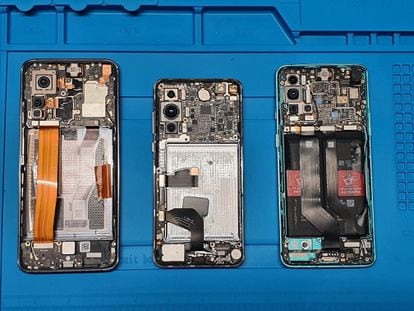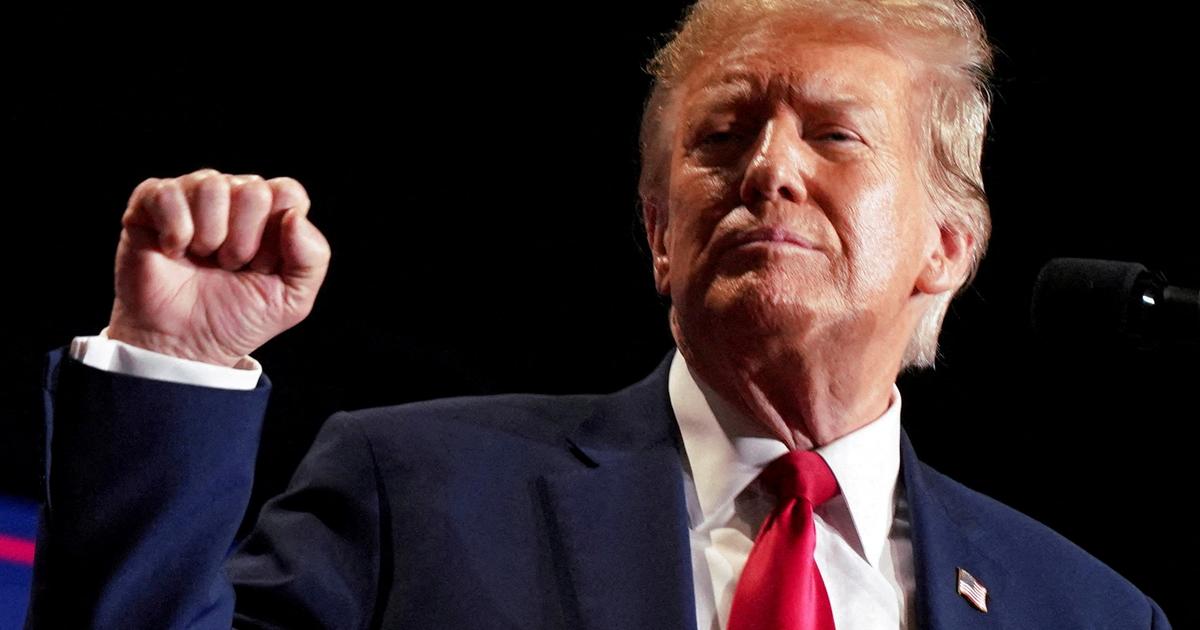Image of three Chinese telephones in a Ministry of Defense laboratory distributed by the Government of Lithuania LITHUANIA DEFENSE MINISTRY / Reuters
Lithuania's defense ministry has advised its citizens to avoid buying Chinese mobiles and has advised those who already have them to get rid of them "as soon as reasonably possible."
This was announced on Tuesday by Deputy Minister Margiris Abukevicius, when presenting a cybersecurity report according to which the flagship phones sold in Europe by the giant Xiaomi incorporate tools that detect and censor, so that the user cannot see them, terms such as “Free Tibet "," Long live the independence of Taiwan "or" democratic movement. "
More information
The mobile, the definitive spy weapon that we carry in our pocket
The National Cyber Center report recognizes, according to Reuters, that this functionality has been deactivated for the European Union area, but ensures that it can be activated remotely at any time.
The document adds that the list of terms that could be censored by system applications, including the default internet browser, currently includes 449 Chinese terms and is continually updated.
"The risks we are talking about are real," he told France Press Abukevicius.
The vice minister revealed that around 200 public institutions in the country use Chinese-made devices and assured that the public sector as a whole should not make use of equipment from that country.
In a statement issued the following day, the Chinese company assured that "Xiaomi has never restricted or blocked the personal activity of the users of our smartphones, such as searches, calls, web browsing or the use
of third-party communication
software
." "Xiaomi fully respects and protects the legal rights of all users," he adds. The Huawei representative in the Baltic countries also assured the cable news network BNS that their phones do not send user data abroad.
As for Huawei, the report claims that the brand's devices pose a threat because they automatically redirect users to third-party app stores that may host virus-infected programs. The Chinese giant has defended itself through a spokesman who has assured that cybersecurity and privacy issues are a priority. "Huawei conducts periodic checks to ensure that the user downloads only secure applications," he added.
The pulse comes at a time of serious deterioration in relations between the two countries. China demanded last month that Lithuania withdraw its ambassador to Beijing and said it would call its envoy to Vilnius after Taiwan announced that its mission in Lithuania would be called the Taiwan Representative Office. Taiwanese missions in Europe and the United States use the city name Taipei, avoiding a reference to the island itself, which China claims as its own territory.
US President Joe Biden's national security adviser, Jake Sullivan, spoke with Lithuanian Prime Minister Ingrida Simonyte last week and highlighted support for his country in the face of pressure from China. The report also claims that the Xiaomi phone was sending encrypted phone usage data to a server in Singapore. A security flaw was also found on China's Huawei P40 5G phone (HWT.UL), but none was found on another Chinese manufacturer's phone, OnePlus, according to the document.
It is not the first time that a large Chinese smartphone producer has been accused of spying. In 2019, the US Department of Justice indicted the Huawei conglomerate and its CEO, Wanzhou Meng, on 23 counts, including fraud and theft of technology and confidential information. President Donald Trump even signed an executive order to prohibit commercial exchanges of US technology companies with Huawei and other companies from the Asian giant. The Chinese veto triggered a diplomatic crisis that was resolved in the summer after a series of face-to-face meetings between Trump and his Chinese counterpart, Xi Jinping.
You can follow EL PAÍS TECNOLOGÍA on
and
or sign up here to receive our
weekly newsletter
.









